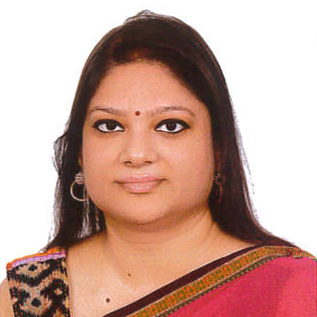Society

Students and other activists carry Bangladesh’s national flag during a protest march organized by Students Against Discrimination to mark one month since former Prime Minister Sheikh Hasina stepped down after a mass uprising, in Dhaka, Bangladesh, Sept. 5,2024. Photo: AP/ UNB
Since the beginning of the anti-discrimination students movement, two terms that have been dominantly making rounds in discussions centring any national issue are I) the term present in the title itself 'anti-discrimination' and ii) 'inclusiveness' as we look forward to building a nation rooted in the principle.
Similar concept Leave No One Behind (LNOB) is also the central, transformative promise of the 2030 Agenda for Sustainable Development Goals. In simple words, ending discrimination and exclusion, and reducing vulnerabilities that leave people behind and undermine their potential.
The terms drag along the disputed topic of freedom of speech as that is inseparable from the concept of anti-discrimination. Now, in an era of information explosion, and especially after witnessing what sharing data on social media platforms can lead to, it is high time policymakers seriously consider projects to publicise clear definitions of the terms and concepts and the dos and don'ts.
What do we mean by inclusiveness? We need to know what freedom of speech is and what the relevant laws and boundaries are that prevent its misuse. Or else, it may become a tool and misinterpretation of the concepts may lead to fuelling anarchy across the country. Although internet shutdowns became familiar to the masses in the recent past, the phenomenon was not unprecedented. The government has time and again taken such measures, maybe at a smaller scale, due to various reasons e.g. to contain communal conflict, question leak during public exams, during elections or simply to choke any philosophy that goes against it. Such practices not only have been contrary to democratic practices but also wreaked havoc on our GDP.
Could it be that draconian laws and restrictions now have resulted in such a mass hysteria that stirring disputes on social media and lambasting concepts like women empowerment and religious harmony feels like being above discrimination and free to express?
At a time when civil society organisations, the private sector, students, and the interim government are trying to collaborate to find the best solutions for this tormented land, the decision-makers must prioritise some media literacy for mass people. It is high time that we get a handbook setting the middle ground that ensures freedom of speech and space for people from all walks of life while highlighting basic grammar and principles that Bangladesh, as a nation, will not waver away from.
In an inclusive nation, torched shops and cries and dead bodies on the hills need to be addressed with more care than happenings on the plain lands. As that is how we implement and sustain equity; giving more floor to those excluded or marginalised to create a level playing field. In an inclusive Bangladesh, chemistry must be developed among people of different generations who are now heading the government, civil society, and private sector. Regular dialogues, knowledge-sharing sessions, cultural events and activities can be great mediums to interact and find common interests.
In an inclusive society free of discrimination, we expect the judiciary and law enforcement to not be maligned with the vengeance of some vested quarter. It is minimal that police be loud and clear before the media about which case has been filed when arresting MPs, leaders and personalities affiliated with the recently ousted government. We expect organisations working for women's rights and communal harmony to operate with more vigour than before; without having to face threats and intimidation. In an inclusive country free of discrimination, we expect to see women breaking the glass ceilings; not be catcalled for missing a scarf.
In an inclusive country free of discrimination, local government and service providers must be held accountable to ensure communities like Dalits and sex workers receive fair opportunities, services and facilities to be free of social stigma. Any community deemed as minor based on their religion, ethnic identity, profession or sexual orientation is treated with respect as an invaluable part of our national identity.
Promiti Prove Chowdhury is deputy manager (outreach and capacity) at the Advocacy for Social Change programme at BRAC. E-mail: promiti.chowdhury@gmail.com

























Leave a Comment
Recent Posts
Auspicious beginnings, but a l ...
The newly elected government of Bangladesh is now in office, and the e ...
Caught between tigers and pira ...
Over 10,000 fishermen in the Sundarbans have suspended their fishing a ...
Historic Chawk Bazar comes alive with iftar items on ..
Shaping Young Conservationists: School Conservation ..
Iran has said it has reached an understanding with t ..
New Finance Minister Amir Khosru Mahmud Chowdhury